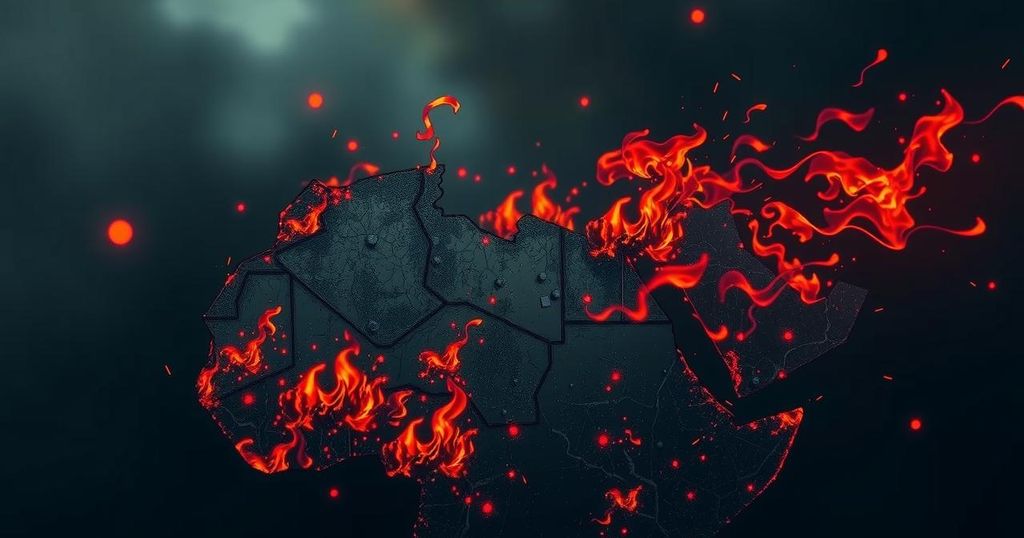Escalating Tensions in Tigray: A Looming Threat of Conflict
Tensions are escalating in Tigray, Ethiopia, as Eritrean soldiers control territory inside Ethiopian borders, leading to fears of resuming conflict despite a peace agreement from two years prior. The interim vice-president of Tigray highlights the precarious situation and the urgent need for restraint to prevent an outbreak of war, underscoring the importance of sustainable peace in the region.
An armed soldier surveys the horizon through binoculars, alerting his comrades to the presence of Eritrean soldiers positioned on a distant hill within the Tigray region of northern Ethiopia. This area has experienced extensive military engagement, as Eritrean troops exert control over significant swathes of territory, frequently conducting reconnaissance operations that sometimes extend into Ethiopian land. In light of escalating tensions, Tsadkan Gebretensae, the interim vice-president of Tigray, underscores the precarious nature of the situation, noting, “Let them not start a war and we shall not go to war. But we are very much aware that things could get out of control.” This precarious stability reflects the fragility of the region in the aftermath of a peace agreement that concluded a prior violent conflict. Recent history reveals a tumultuous backdrop in Ethiopia, where a peace agreement reached two years ago aimed to quell violent hostilities between the Ethiopian government and Tigrayan forces. However, rather than fostering lasting peace, it has ignited underlying tensions with Eritrean forces stationed nearby, which now threaten to reignite violent hostilities. With Eritrean troops reasonably positioned within Ethiopia and the socio-political landscape remaining unresolved, the potential for renewed conflict looms as power dynamics become increasingly unstable. This situation is indicative of the broader issues affecting the Horn of Africa, characterized by lingering strife and the interconnectedness of regional conflicts. The recent threats from Eritrean forces serve as a stark reminder of the need for continued diplomatic efforts to ensure a sustainable peace, particularly in the sensitive and volatile area of Tigray. Moreover, as military postures shift, observers remain vigilant of the deteriorating situation amidst persistent calls for restraint from regional leaders.
The conflict in Tigray is rooted in longstanding ethnic tensions that have escalated recently into widespread violence. The 2020 outbreak of hostilities marked a significant turning point, leading to the involvement of Eritrean troops and resulting in substantial humanitarian crises. An agreement was struck in November 2022 to halt the violence, but underlying tensions have persisted, revealing the region’s fragile peace. The historical animosity between Ethiopia and Eritrea, compounded by internal political strife, sets the stage for potential resumption of conflict if aggressive military operations are not curtailed.
In conclusion, the current situation in Tigray encompasses a precarious balance maintaining a fragile peace following prior conflict. The presence of Eritrean forces within Ethiopian borders highlights the potential for escalation. Leaders such as Tsadkan Gebretensae stress the gravity of avoiding further conflict, understanding that existing tensions could erupt without careful management. The complexities of the historical and socio-political landscape necessitate proactive diplomatic engagement to ensure lasting stability in the region.
Original Source: www.economist.com




Post Comment